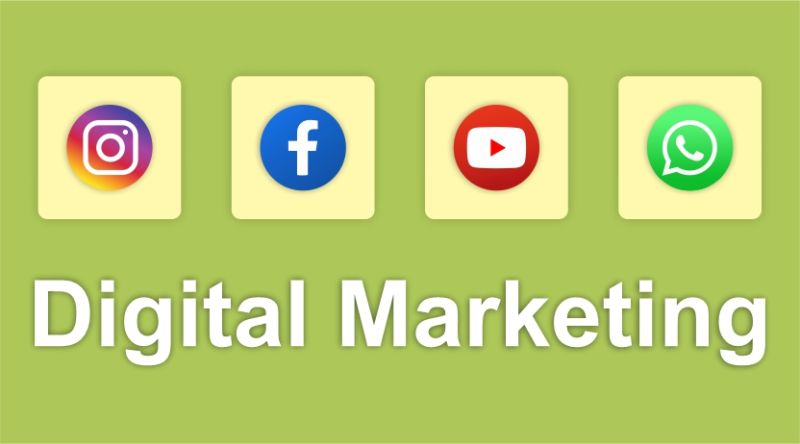
Digital Marketing Course Syllabus
I. Introduction to Digital Marketing
Digital Marketing Fundamentals: Explore the foundational concepts of digital marketing, including its evolution, key terminology, and the role it plays in today's business landscape. Emphasis will be placed on understanding the digital marketing ecosystem and its various channels.
Strategic Planning and Goal Setting: Delve into the strategic aspects of digital marketing, focusing on goal setting, target audience identification, and developing effective digital marketing strategies. Students will learn to align marketing goals with overall business objectives.
II. Website Development and Optimization
Website Basics: Understand the importance of a well-optimized website in digital marketing. Topics include website architecture, user experience (UX), and responsive design to ensure a strong online presence.
Search Engine Optimization (SEO): Explore the fundamentals of SEO, covering keyword research, on-page optimization, and link building. Practical exercises will involve optimizing website content for better visibility in search engine results.
Conversion Rate Optimization (CRO): Learn strategies to improve website conversion rates. Students will understand the principles of CRO and implement techniques to enhance user engagement and drive desired actions.
III. Social Media Marketing
Social Media Strategy Development: Develop comprehensive social media strategies for various platforms. This module covers audience analysis, content planning, and the use of analytics tools to measure social media campaign effectiveness.
Content Creation and Management: Explore the creation of engaging and shareable content for social media. Students will learn to develop a content calendar, use visual elements effectively, and employ storytelling techniques to enhance brand presence.
Social Media Advertising: Understand the principles of paid social media advertising. This section covers ad creation, targeting options, and budget management across popular social platforms.
Influencer Marketing: Explore the role of influencers in digital marketing. Students will learn how to identify, approach, and collaborate with influencers to amplify brand messages and reach a wider audience.
IV. Pay-Per-Click (PPC) Advertising
Introduction to PPC: Understand the fundamentals of pay-per-click advertising, including keyword research, ad creation, and bidding strategies. Practical exercises will involve setting up and managing PPC campaigns on platforms like Google Ads.
Display Advertising: Explore the world of display advertising, covering banner ads, retargeting, and display network campaigns. Students will learn to design effective visual ads and analyze their performance.
Analytics and Optimization: Use analytics tools to measure the performance of PPC campaigns. This module focuses on data-driven decision-making, A/B testing, and continuous optimization to maximize ROI.
V. Email Marketing
Email Marketing Strategy: Develop effective email marketing strategies, including segmentation, personalization, and automation. Emphasis will be placed on building and nurturing customer relationships through targeted email campaigns.
Campaign Creation and Execution: Learn to create compelling email campaigns, covering design, copywriting, and call-to-action optimization. Practical exercises will involve the use of email marketing platforms to execute campaigns.
Analytics and Performance Measurement: Understand how to analyze email campaign metrics and make data-driven decisions for improvement. Topics include open rates, click-through rates, and conversion tracking.
VI. Content Marketing
Content Strategy and Planning: Develop a comprehensive content marketing strategy aligned with business goals. Students will learn to identify target audiences, conduct content audits, and plan content distribution across channels.
Content Creation and Optimization: Explore the creation of various content types, including blog posts, videos, and infographics. This module covers best practices for content optimization and distribution.
Content Marketing Analytics: Understand how to measure the effectiveness of content marketing efforts. Students will learn to use analytics tools to track content performance and make informed decisions for future content creation.
VII. Data Analytics and Marketing Insights
Introduction to Marketing Analytics: Explore the role of data analytics in digital marketing. Topics include data collection, analysis, and interpretation to gain actionable insights.
Key Performance Indicators (KPIs) and Metrics: Understand the importance of KPIs in digital marketing. This module covers the selection and tracking of relevant metrics to evaluate the success of marketing campaigns.
Data-Driven Decision Making: Learn how to make informed decisions based on marketing data. Practical exercises will involve scenario analysis and the development of data-driven marketing strategies.
VIII. Capstone Project and Portfolio Development
Capstone Project: Apply the knowledge and skills acquired throughout the course to a real-world digital marketing project. Students will develop a comprehensive digital marketing campaign, incorporating elements from various modules.
Portfolio Development: Create a professional digital marketing portfolio showcasing the best work from the course. This module includes guidance on presenting projects effectively to potential employers or clients.